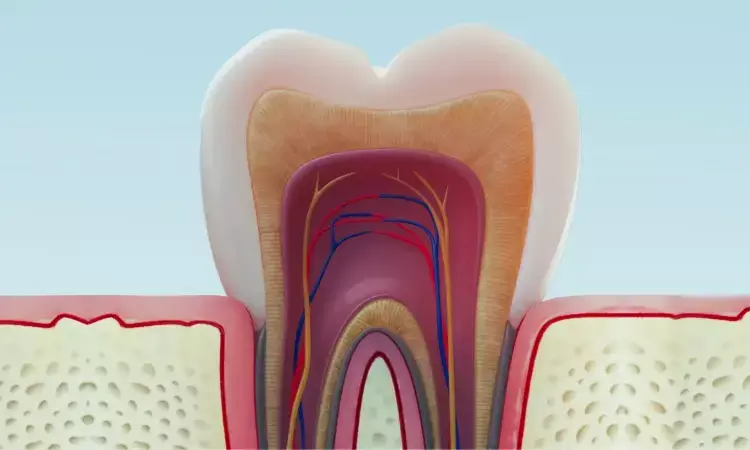- Home
- Medical news & Guidelines
- Anesthesiology
- Cardiology and CTVS
- Critical Care
- Dentistry
- Dermatology
- Diabetes and Endocrinology
- ENT
- Gastroenterology
- Medicine
- Nephrology
- Neurology
- Obstretics-Gynaecology
- Oncology
- Ophthalmology
- Orthopaedics
- Pediatrics-Neonatology
- Psychiatry
- Pulmonology
- Radiology
- Surgery
- Urology
- Laboratory Medicine
- Diet
- Nursing
- Paramedical
- Physiotherapy
- Health news
- Fact Check
- Bone Health Fact Check
- Brain Health Fact Check
- Cancer Related Fact Check
- Child Care Fact Check
- Dental and oral health fact check
- Diabetes and metabolic health fact check
- Diet and Nutrition Fact Check
- Eye and ENT Care Fact Check
- Fitness fact check
- Gut health fact check
- Heart health fact check
- Kidney health fact check
- Medical education fact check
- Men's health fact check
- Respiratory fact check
- Skin and hair care fact check
- Vaccine and Immunization fact check
- Women's health fact check
- AYUSH
- State News
- Andaman and Nicobar Islands
- Andhra Pradesh
- Arunachal Pradesh
- Assam
- Bihar
- Chandigarh
- Chattisgarh
- Dadra and Nagar Haveli
- Daman and Diu
- Delhi
- Goa
- Gujarat
- Haryana
- Himachal Pradesh
- Jammu & Kashmir
- Jharkhand
- Karnataka
- Kerala
- Ladakh
- Lakshadweep
- Madhya Pradesh
- Maharashtra
- Manipur
- Meghalaya
- Mizoram
- Nagaland
- Odisha
- Puducherry
- Punjab
- Rajasthan
- Sikkim
- Tamil Nadu
- Telangana
- Tripura
- Uttar Pradesh
- Uttrakhand
- West Bengal
- Medical Education
- Industry
Patients with symptom free Root-Filled Teeth with Apical Periodontitis have Stable outcomes: Study

A new study published in the journal of the International Endodontic Journal revealed that patients with symptom-free root-filled teeth and apical periodontitis (AP) seldom show short-term worsening or increased bone destruction, though longer follow-up is needed to identify risk factors.
The study was set to determine how often symptoms emerged and whether the size of apical bone destruction changed in previously root-filled but asymptomatic teeth exhibiting persistent AP. A total of 187 eligible patients were initially identified and invited to participate. After informed consent and cone-beam computed tomography (CBCT) imaging, 171 patients (a participation rate of 91.4%) were included.
To ensure uniformity and avoid complex surgical cases, individuals whose bone destruction extended beyond cortical boundaries were excluded. An additional 10 patients were lost during follow-up, leaving 157 individuals available for analysis at the outset of the observation period.
Over the one-year monitoring interval, only 3 patients developed symptomatic apical periodontitis, and these cases required clinical intervention. One additional tooth was lost due to fracture rather than infection progression. The remaining 153 participants completed the study with no significant adverse outcomes. Among them, 8 individuals (5.2%) reported experiencing mild discomfort or intermittent pain. However, none sought dental treatment, indicating that symptoms were minimal and manageable without intervention.
Changes in lesion size were also remarkably small. The average apical bone destruction increased only marginally, from a mean diameter of 7.25 mm at baseline to 7.31 mm at the one-year follow-up. This tiny shift (mean change of 0.059 mm) was not statistically significant, which demonstrated that most lesions remained radiographically stable. The standard deviation also changed only slightly, which suggests consistent findings across participants rather than variation driven by a few extreme cases.
Very low incidence (approximately 2%) of progression to symptomatic AP requiring treatment. Minimal lesion expansion that does not approach clinical significance. The vast majority of patients remained symptom-free and mild discomfort was reported by a small proportion (just over 5%) but without healthcare utilization.
Overall, in the short term, symptom-free root-filled teeth with AP seldom worsen or show measurable radiographic deterioration. These results reinforce earlier observational studies and support a cautious monitoring approach rather than immediate intervention, particularly when clinical symptoms are absent.
Source:
Sayady-Ölander, M., Östlin, J., Yu, V. S. H., Ulin, C., EndoReco, & Kvist, T. (2025). Monitoring asymptomatic apical periodontitis in root-filled teeth-results from a one-year follow-up prospective study. International Endodontic Journal, iej.70059. https://doi.org/10.1111/iej.70059
Neuroscience Masters graduate
Jacinthlyn Sylvia, a Neuroscience Master's graduate from Chennai has worked extensively in deciphering the neurobiology of cognition and motor control in aging. She also has spread-out exposure to Neurosurgery from her Bachelor’s. She is currently involved in active Neuro-Oncology research. She is an upcoming neuroscientist with a fiery passion for writing. Her news cover at Medical Dialogues feature recent discoveries and updates from the healthcare and biomedical research fields. She can be reached at editorial@medicaldialogues.in
Dr Kamal Kant Kohli-MBBS, DTCD- a chest specialist with more than 30 years of practice and a flair for writing clinical articles, Dr Kamal Kant Kohli joined Medical Dialogues as a Chief Editor of Medical News. Besides writing articles, as an editor, he proofreads and verifies all the medical content published on Medical Dialogues including those coming from journals, studies,medical conferences,guidelines etc. Email: drkohli@medicaldialogues.in. Contact no. 011-43720751


